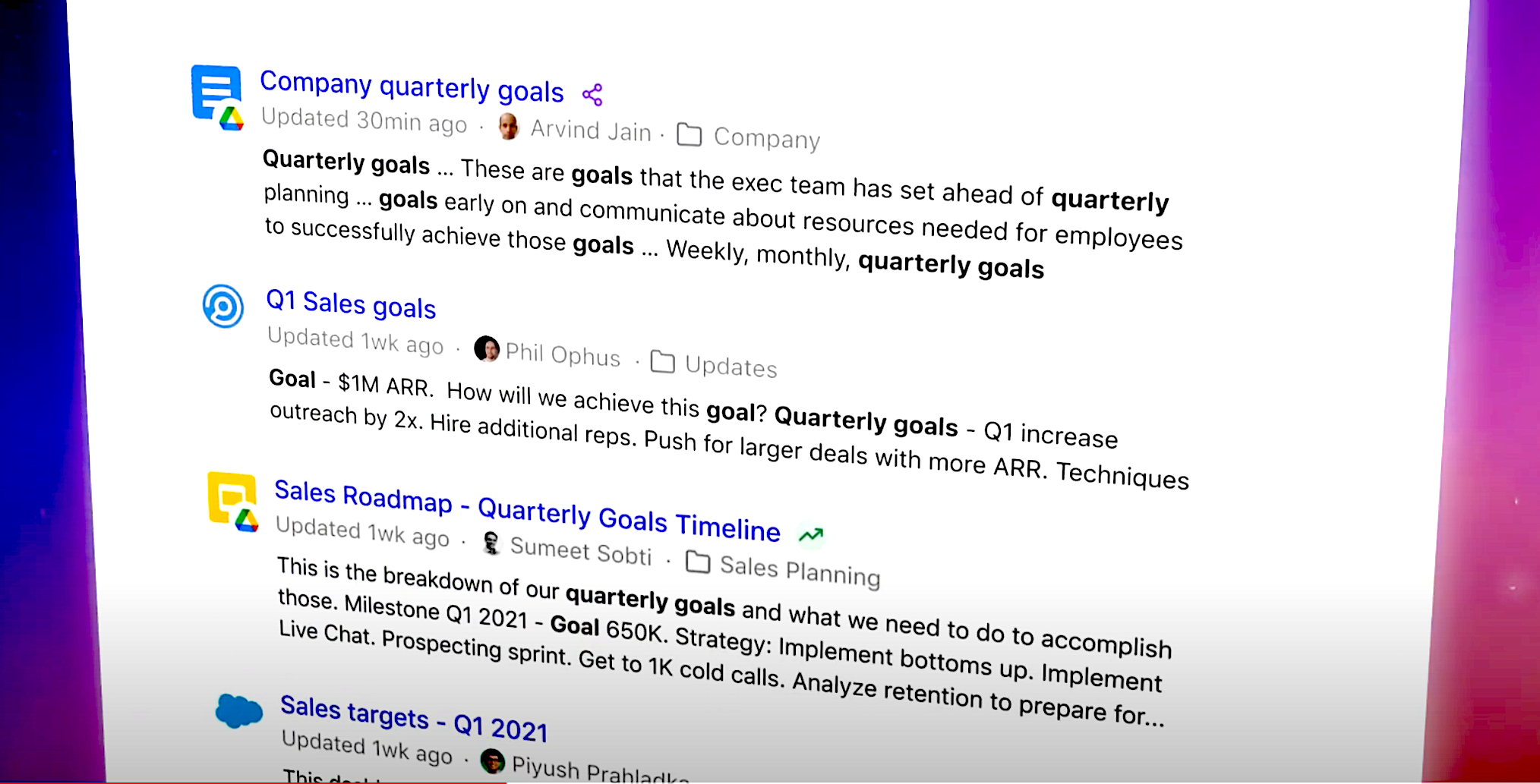 AI
AI
 AI
AI
 AI
AI
Glean Technologies Inc., the developer of a search engine that enterprises can use to index their own content, today announced the addition of generative artificial intelligence and other AI-grounded technologies to its core service.
The company says it’s using generative machine learning models to understand and synthesize content to provide more precise answers to natural language queries that consider content, context and permissions from across the organization. OpenAI LP’s ChatGPT is a popular example of generative AI.
Glean said it’s also improving its engine’s understanding of how a company’s content, employees and activity relate to each other to identify internal experts in query responses. New in-context recommendations add supplemental content and context to information with clickable recommendations for related or relevant content from across the company that appears in a companion window.
ChatGPT has inspired people to imagine the technology’s potential to be applied to enterprise data but “the large language models in the marketplace aren’t sufficient to unlock the full value,” said Arvind Jain, Glean’s founder and chief executive. “It isn’t easy to train GPT-4 [the latest version of the generative pre-trained transformer model] on your knowledge base.”
Among the problems are access control and reliability. “Models can hallucinate,” Jain said. “You need to ground them so they’re using the right knowledge and asking the right questions. Those are some of the core challenges.”
When used inside the firewall, generative AI needs to understand not only content but also context, interpersonal relationships, a company’s internal language and privacy and security parameters, the company said. Glean retrains deep learning language models on a company’s knowledge base to develop an organizational taxonomy and understand the nuances of how people communicate. It also takes into account permissions and governance rules and shows which sources are used to generate responses.
The software also uses semantic search principles to return answers that relate to a query even if the specific terms aren’t used. For example, a query about personally identifiable information might return a result about log data, said Eddie Zhou, a founding engineer at Glean. “It has read everything, knows what everyone does and never forgets anything,” Zhou said.
Glean said its generative AI capabilities will support multiple LLMs and be supplied via extensions to Chrome-based browsers. The feature doesn’t currently work within desktop applications, however.
THANK YOU